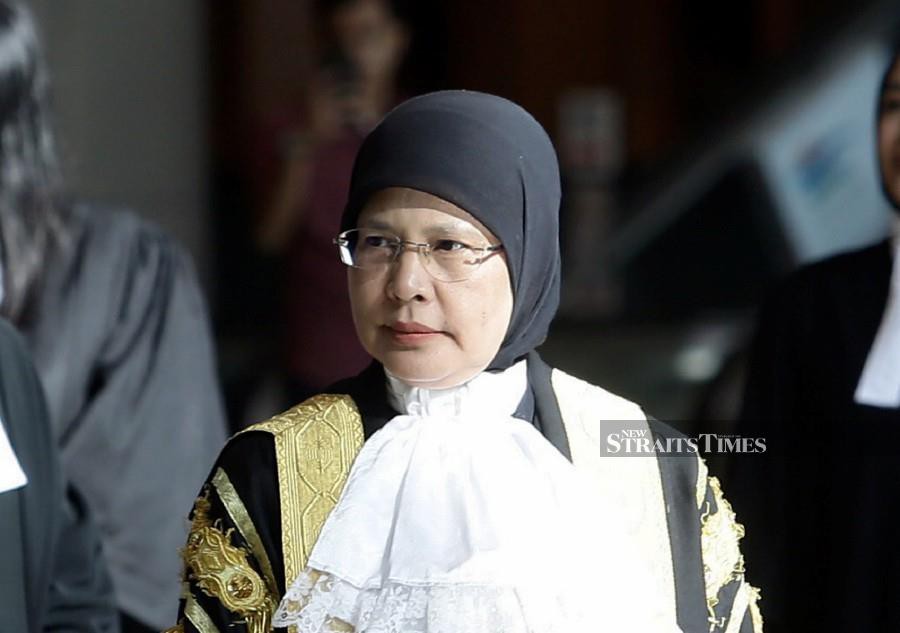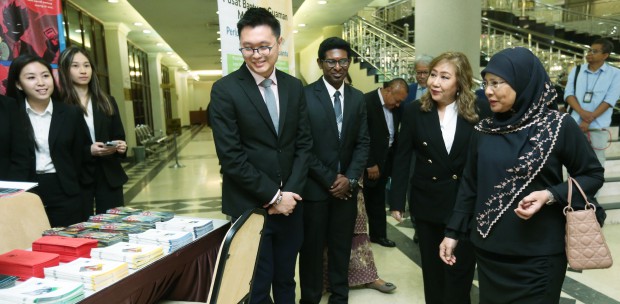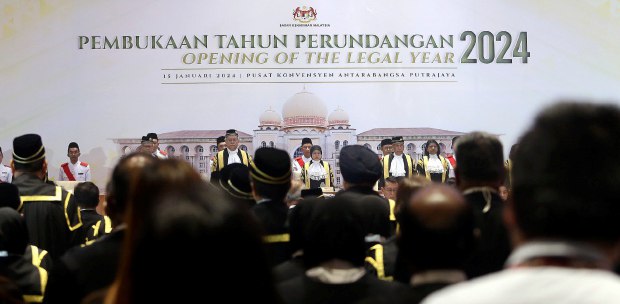PUTRAJAYA: Chief Justice Tun Tengku Maimun Tuan Mat has reminded the lower courts to adhere to the precedents established by the higher courts.
She said the Federal Court, being the highest court, must also remember that it cannot depart too easily from precedent especially if a previously decided authority is questioned shortly after it was decided.
"The Federal Court cannot afford to be inconsistent as that interferes with the public who organises their affairs upon legal clarity and certainty. In this regard, the individual opinion of a judge is not relevant due to the principle of stare decisis (to stand by things decided).
"Even if a judge or court deems a decision of the higher court to be incorrect, they are obligated to abide by it," Justice Tengku Maimun said when delivering her speech at the Opening of the Legal Year 2024 at the Putrajaya International Convention Centre (PICC) today (January 15).
According to Justice Tengku Maimun, some concepts such as constitutional supremacy in Article 4(1) of the Federal Constitution have been firmly established in the country's legal framework.
"While judges are free to express their differing opinions on the integral features based on the cases before them, it is inappropriate for them to dispute the existence of the concept itself. In this regard, stare decisis must not only be observed by judges but by all officers of the court, including advocates from the Bar and those in the public service," she added.
Justice Tengku Maimun said, based on her courtroom observations, she has noticed a trend among a minority of advocates who cite cases without acknowledging that the cited cases or principles have been expressly overruled.
"At times, these advocates put forth untenable propositions that stem from a selective, dishonest or distorted interpretation of earlier cases. These violations happen in all sorts of cases but they are particularly glaring when they happen in constitutional cases.
"In any event, when it does occur, it throws judges off as certain propositions seem more convincing than they should be due to their selective yet disingenuous articulation.
"I think it goes without saying that advocates, especially the senior ones, know that this is not the candour and standard of professional courtesy expected of them and as such, this practice deserves to be called out and must be stopped," she said.
Meanwhile, Justice Tengku Maimun said the Malaysian Judiciary would like to commend the government for previously allocating funds, specifically to enhance the capabilities of the Construction Court and the Kuala Lumpur Commercial Courts.
"We would like to humbly invite the government to consider increasing funding for these courts, particularly, to entertain the idea of enhancing the structure of such courts. This would ensure that they can continue to compete and remain on par with international standards and international commercial courts," she added. --BERNAMA





